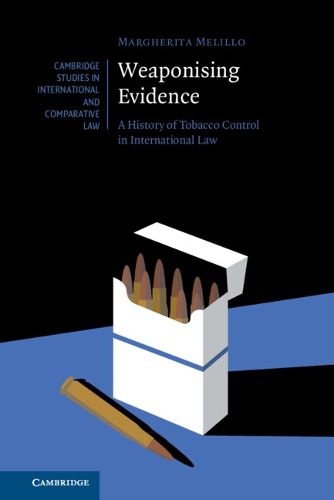Readings Newsletter
Become a Readings Member to make your shopping experience even easier.
Sign in or sign up for free!
You’re not far away from qualifying for FREE standard shipping within Australia
You’ve qualified for FREE standard shipping within Australia
The cart is loading…






Weaponising Evidence provides the first analysis of the history of the international law on tobacco control. By relying on a vast set of empirical sources, it analyses the negotiation of the WHO Framework Convention on Tobacco Control (FCTC) and the tobacco control disputes lodged before the WTO and international investment tribunals (Philip Morris v Uruguay and Australia - Plain Packaging). The investigation focuses on two main threads: the instrumental use of international law in the warlike confrontation between the tobacco control advocates and the tobacco industry, and the use of evidence as a weapon in the conflict. The book unveils important lessons on the functioning of international organizations, the role of corporate actors and civil society organizations, and the importance and limits of science in law-making and litigation.
$9.00 standard shipping within Australia
FREE standard shipping within Australia for orders over $100.00
Express & International shipping calculated at checkout
Weaponising Evidence provides the first analysis of the history of the international law on tobacco control. By relying on a vast set of empirical sources, it analyses the negotiation of the WHO Framework Convention on Tobacco Control (FCTC) and the tobacco control disputes lodged before the WTO and international investment tribunals (Philip Morris v Uruguay and Australia - Plain Packaging). The investigation focuses on two main threads: the instrumental use of international law in the warlike confrontation between the tobacco control advocates and the tobacco industry, and the use of evidence as a weapon in the conflict. The book unveils important lessons on the functioning of international organizations, the role of corporate actors and civil society organizations, and the importance and limits of science in law-making and litigation.